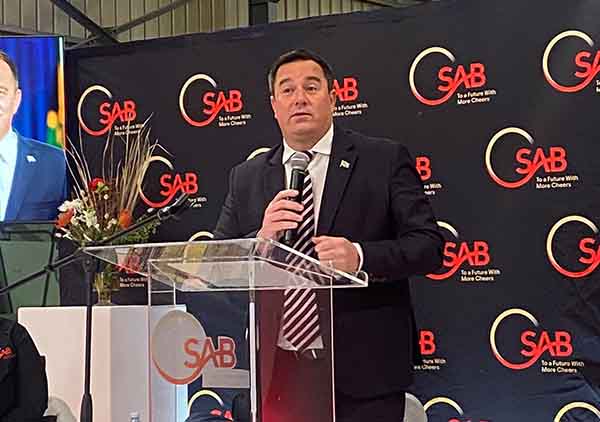By Larry Claasen
Newly appointed Agriculture Minister John Steenhuisen has made it clear that the government’s support for small farmers will focus on three pillars: viability, sustainability, and profitability. Speaking at a South African Breweries (SAB) event in Caledon, Steenhuisen emphasized that small farmers must be scaled up in a way that enables them to become commercially viable.
Steenhuisen criticized previous assistance programs for being mere “tick box exercises,” where beneficiaries were given land and seeds but little else in terms of meaningful support. “There’s no use dumping someone in a field with seeds and a few implements and saying, there we go, you’re now a farmer,” he said.
The minister stressed that small farmers need more than just land; they need access to a value chain that ensures their produce reaches the market. “You can’t have a field of the most beautiful cabbages sitting somewhere, but there’s no market,” he added.
Government’s Support for Small Farmers: Viability, Sustainability, and Profitability
Steenhuisen stated that under his leadership, the government will focus on ensuring that farms are not only started but are also viable, sustainable, and profitable in the long term. “We wonder why 90% of the projects do not succeed,” he remarked. He aims to change this by ensuring that small farmers receive the necessary support to transition from subsistence farming to commercial farming.
The approach Steenhuisen envisions includes choosing viable land, providing sustainable support, and creating pathways for small farmers to scale up. “We have to look at how we choose viable land, how we provide sustainable support, and how we transition those farmers from subsistence small-scale to large-scale farmers,” Steenhuisen emphasized.
Enhancing the Agricultural Value Chain for Small Farmers
The minister also highlighted the importance of integrating smaller farmers into the broader agricultural value chain. By doing so, he believes small farmers can grow their businesses and contribute meaningfully to the agricultural sector. He pointed to SAB’s small-scale farming partnerships as an example of how effective this integration can be.
Steenhuisen praised SAB’s collaboration with small farmers to source limes for its Corona beer brand, noting that over a million limes were harvested in 2023, with some even being exported. “This type of success works because the industry and the government are working together,” he said.
Partnering with Industry: SAB and Small-Scale Farming Success
Steenhuisen believes that successful partnerships between industry and government are key to empowering small farmers and transforming the agricultural sector. “The Agriculture Department on its own cannot achieve transformation goals, it cannot achieve the empowerment goals, it cannot achieve the food security goals, unless there is a strong element of partnership,” he noted.
This is why Steenhuisen considers the Agriculture and Agro-Processing Master Plan (AAMP) crucial for fostering these partnerships. The AAMP is a social compact created by the government, business, labor, and civil organizations to drive agricultural sector development in South Africa.
Integrating the Beer Industry into the Agriculture and Agro-Processing Master Plan
Steenhuisen revealed his plan to incorporate the beer industry into the AAMP. He has already had discussions with SAB CEO Richard “Boris” Rivett-Carnac about including the beer value chain in the master plan.
“We’re going to make it happen as quickly as possible, to have a beer value chain included in the Agriculture and Agro-Processing Master Plan, because there is great alignment with agriculture and the agri-processing of natural products,” said Steenhuisen. He highlighted how the beer industry adds value to agricultural products, such as turning barley into a commodity with continental and international demand.
Creating an Enabling Environment for Agriculture
Steenhuisen reiterated that his goal is not just to ensure food security for South Africa but also to enable the country to export its agricultural products globally. He explained that these types of partnerships would extend across all agricultural commodities, ensuring the growth and success of the sector.
“The Agriculture Department’s primary job is to create an enabling legislative and regulatory environment that makes it as easy as possible for our agricultural commodities and sectors to flourish,” Steenhuisen stated. He emphasized that when the agricultural sector thrives, it creates jobs, improves food security, and enhances foreign direct investment by allowing South Africa to export more products.
He also acknowledged the resilience and hard work of South African farmers and farm workers. “It always amazes me how amazing our South African farmers and farm workers are,” said Steenhuisen.















